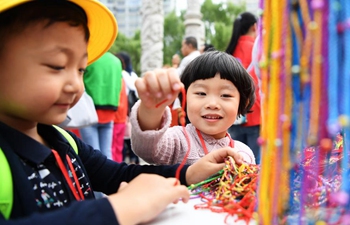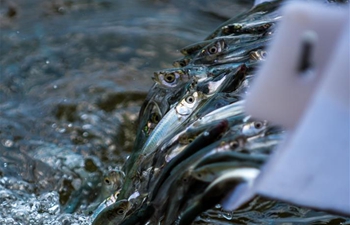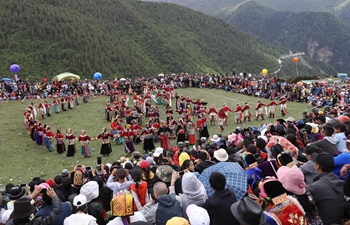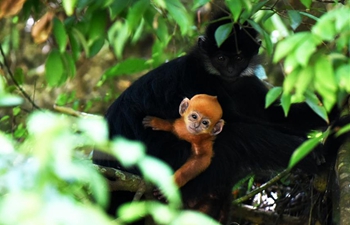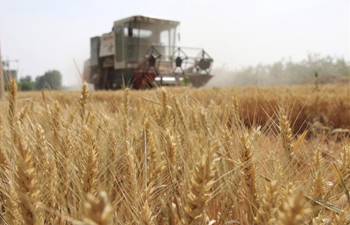NANCHANG, June 8 (Xinhua) -- Through the cracks in an eggshell, Zou Jinlian could see the little cygnet shaking its head and bravely trying to break out.
As breeding season comes, for Zou, helping the newborns and their migrant parents settle in a new habitat in the city always make her happy.
Working as director of a protection center for migrant birds at Aixihu Forest Wetland Park in Nanchang, capital of east China's Jiangxi Province, Zou, 31, has taken care of migrant birds for nearly a decade.
Lying in the heart of Nanchang, the wetland park has been a wonderland for migrant birds. Wild geese, egrets and swans came, stayed and bred, both naturally and artificially.
"Mother swans laid eggs and the babies cracked the shells, now it is the sixth generation," Zou said.
In 2010, Zou, then an accountant at a state-owned enterprise, quit her job and got rid of the hustle and bustle of city life, working as a wild rare animal rescuer at Poyang Lake Wetland Park, a "paradise for migratory birds."
Jiangxi provides superior conditions for birds' habitat and reproduction. A total of 570 species of birds are recorded, with some of them under the country's top protection for wildlife, including the oriental white storks.
However, days on the isolated island where she worked were quite boring. There was nothing but beautiful views.
"I worked from sunrises till sunsets, never had watched the television or surfed the Internet," she said, joking on her primitive way of life.
She thought about quit but did not give up. During her days working at Poyang Lake Wetland Park, Zou rescued hundreds of white cranes and swans.
In July 2014, she was invited to work at Aixihu Forest Wetland Park to establish the protection center for migrant birds.
The park covers 80,000 square meters of water area with three islands and 60,000 square meters of woodland, which creates an ideal habitat for more than 1,000 migrant birds.
It has become a wonderland not only for the birds, but for a growing number of tourists. Children enjoy themselves making intimate contacts with the birds on weekend visits.
"Providing the kids with an experience close to nature will help them understand the importance of ecological conservation and protect those migrant birds by habit," Zou said.




